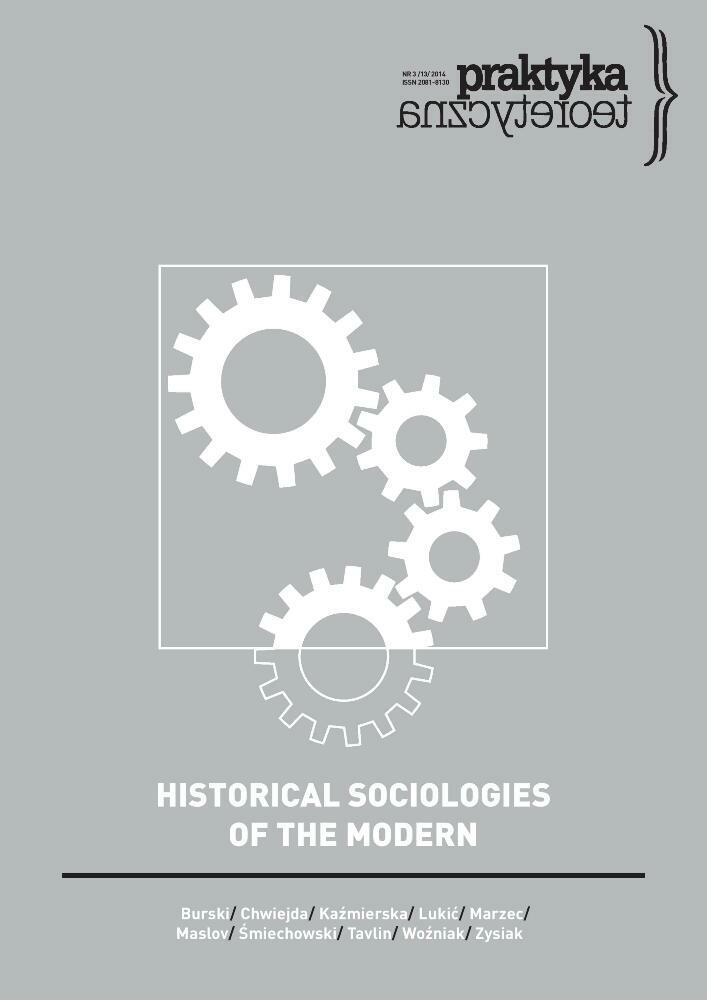Abstrakt
When Bruno Latour says that “we have never been modern,” he means only to recognize that the ‘actually living’ of modernity (or the temporal duration we’ve often categorized as ‘modernity’) is something altogether different (and far more complicated) than the theoretical apparatus by which academic intellectuals use to describe and categorize it. The modern condition, then, involves a separation between the socio-economic creation of ‘hybrid objects’ and theoretical reflection on society. This reflection takes the form of ‘purification,’ or a clear distinction between nature and culture, science and politics. Drawing upon Charles Dickens’ last completed novel, Our Mutual Friend, as well as Marx, I will argue that already in Victorian England we can find coherent representations of modernity that defy Latour’s high standard of actualized purification (or a visible ‘reality’ that conforms to our purified categorizations). That is, in Dickens and Marx we can find a literary-economic discourse of ‘modernity’ (which may also be Victorian post-humanism) that already recognized the failure of ‘purification’ as the result of expansive capitalism.Bibliografia
Castree, Noel. 2002. “False Antitheses? Marxism, Nature and Actor-Networks.” Antipode 34:111-146.
Cleaver, Harry. 2000. Reading Capital Politically. London: AK Press.
Dickens, Charles. 1997. Our Mutual Friend. London: Penguin.
Ketabgian, Tamara. 2011. The Lives of Machines: The Industrial Imaginary in Victorian Literature and Culture. Ann Arbor: University of Michigan Press.
Latour, Bruno. 1993. We Have Never Been Modern. Cambridge, MA: Harvard University Press.
Noys, Benjamin. 2010. The Persistence of the Negative: A Critique of Contemporary Continental Theory. Edinburgh: Edinburgh University Press.
Poovey, Mary. 1995. Making a Social Body: British Cultural Formation, 1830-1864.
Chicago: University of Chicago Press.
Söderberg, Johan, and Adam Netzen. 2010. “When All That Is Theory Melts into (Hot) Air: Contrasts and Parallels between Actor Network Theory, Autonomist Marxism, and Open Marxism.” Ephemera 10:95-118.
Sussman, Herbert, and Gerhard Joseph. 2004. “Prefiguring the Posthuman: Dickens and Prosthesis.” Victorian Literature and Culture 32:617-628.
Toscano, Alberto. 2012. “Seeing It Whole: Staging Totality in Social Theory and Art.” The Sociological Review 60:64-83.
Tucker, Robert C., Karl Marx, and Friedrich Engels. 1978. The Marx-Engels Reader. New York: Norton.
White, Hylton. 2013. “Materiality, Form, and Context: Marx contra Latour.” Victorian Studies 55: 667-682.
Licencja
Autorzy:
„Praktyka Teoretyczna” jest pismem, które chce realizować idee wolnego dostępu do wiedzy i poszerzania domeny dobra wspólnego. Ma służyć rozwojowi nauki i krytycznej refleksji w Polsce i na świecie w imię idei wolnego dostępu do wiedzy (Open Access). Całe pismo jest udostępniane za darmo w Internecie na warunkach licencji CC-BY-NC-SA (Uznanie autorstwa-Użycie niekomercyjne-Na tych samych warunkach 4.0 Międzynarodowe) w wersji 4.0 (szczegółowe warunki: http://creativecommons.org/licenses/by-nc-sa/4.0/). Artykuły w nim zamieszczone mogą być dowolnie przechowywane, kopiowane, drukowane, rozpowszechniane i wykorzystywane do celów naukowo-dydaktycznych przy zachowaniu warunków licencji. Apelujemy tylko o uznanie autorstwa i podanie źródła w myśl przyjętych w środowisku naukowym standardów.
Nie ma natomiast możliwości komercyjnego wykorzystania zgromadzonych zasobów bez pisemnej zgody wydawcy. Dostęp do czasopisma nie może być dystrybuowany za opłatą czy w jakikolwiek inny sposób limitowany przez inne podmioty.
Autorzy tekstów przyjętych do publikacji w czasopiśmie „Praktyka Teoretyczna” są zobowiązani do wypełnienia, podpisania i odesłania na adres redakcji umowy o udzielenie nieodpłatnej licencji do utworów, z zobowiązaniem do udzielania sublicencji CC [PL.pdf, PL.doc, EN.pdf, EN.doc].
Zgodnie z umową, autorzy tekstów opublikowanych w czasopiśmie „Praktyka Teoretyczna” udzielają wydawcy czasopisma niewyłącznej i nieodpłatnej licencji oraz zezwalają na użycie sublicencji Creative Commons Uznanie autorstwa-Użycie niekomercyjne-Na tych samych warunkach 4.0 Międzynarodowe (CC-BY-NC-SA 4.0).
Autorzy zachowują prawa do dalszego, swobodnego rozporządzania utworem.
Autorzy nadsyłanych artykułów powinni upewnić się, czy wykorzystywane przez nich materiały nie są chronione prawami autorskimi na rzecz innych osób i ponoszą odpowiedzialność za ewentualne uchybienia w tym względzie.
